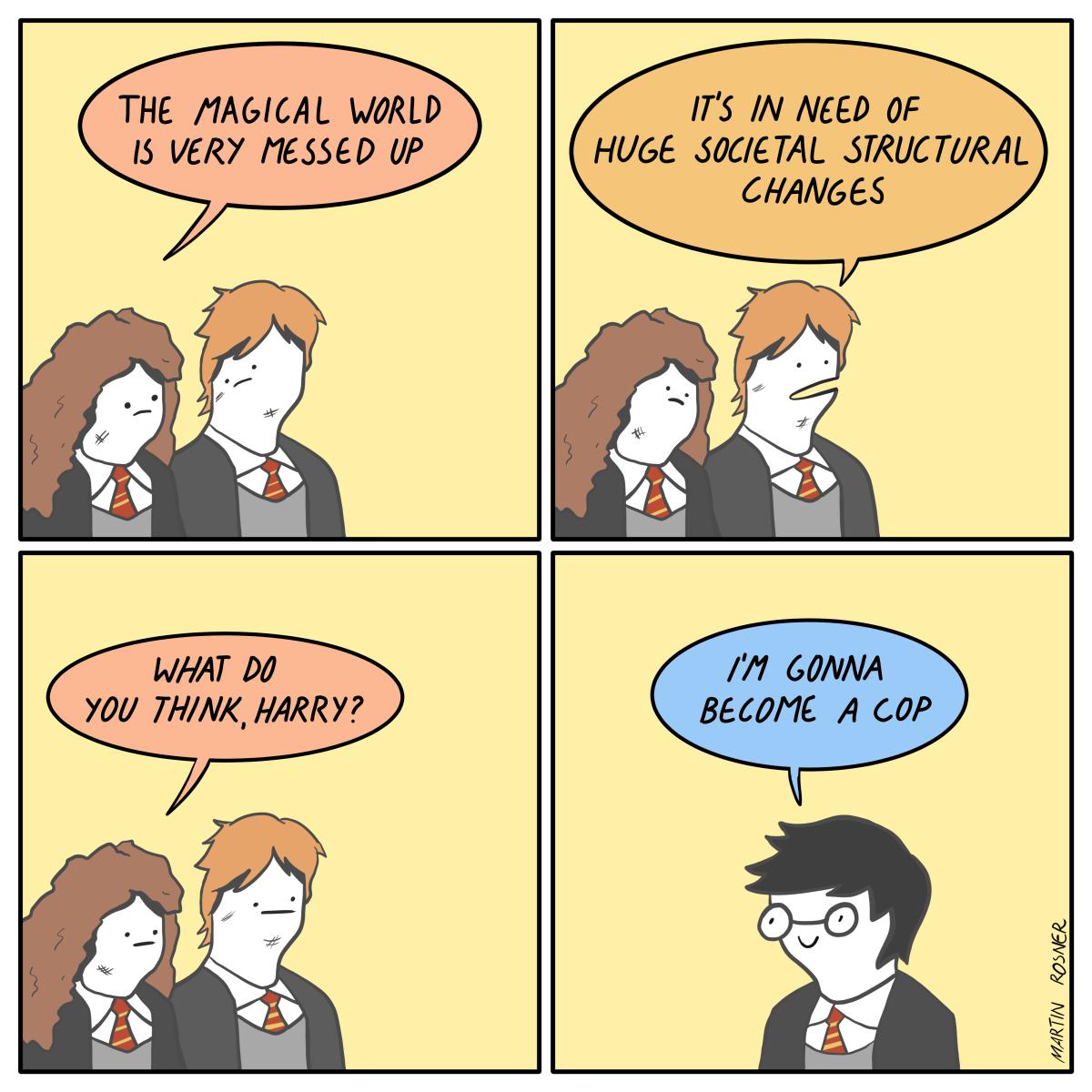this post was submitted on 04 Feb 2024
1363 points (97.0% liked)
Comic Strips
11779 readers
2526 users here now
Comic Strips is a community for those who love comic stories.
The rules are simple:
- The post can be a single image, an image gallery, or a link to a specific comic hosted on another site (the author's website, for instance).
- The comic must be a complete story.
- If it is an external link, it must be to a specific story, not to the root of the site.
- You may post comics from others or your own.
- If you are posting a comic of your own, a maximum of one per week is allowed (I know, your comics are great, but this rule helps avoid spam).
- The comic can be in any language, but if it's not in English, OP must include an English translation in the post's 'body' field (note: you don't need to select a specific language when posting a comic).
- Politeness.
- Adult content is not allowed. This community aims to be fun for people of all ages.
Web of links
- [email protected]: "I use Arch btw"
- [email protected]: memes (you don't say!)
founded 1 year ago
MODERATORS
you are viewing a single comment's thread
view the rest of the comments
view the rest of the comments

Some comments complaining about the house elves status don't see how well it spills into real life.
Society didn't care in the books, society doesn't care in real life. Change was slow in the books, change is slow in real life.
Rowling was accurate as fuck in this regard.
That isn't how real life works and the fact that Rowling contributed that perception to millions of children is unironically worse than the TERF shit.
Do you think it's because more people seem to defend or put stock in the elf slave stuff as being ok?
What is "It" in the question?
oh whoops, the audience or readers of harry potter. slavery is sorta a normal thing (as in, people are aware it is and was a thing) where as nose-less magic villain is more novel
This might be true, but Rowling also makes choices in regards to how she thinks we should perceive individuals who do want to change the world for the better. Hermione wants to free the house elves and is depicted as being a busybody and white knight more interested in her own sense of self-righteousness than actually improving the world. In art, just as in real life, the particular contains the universal, and we can make the logical conclusion that this is how Rowling broadly perceives people in the real world that advocate for social change.
Now you're reminding me of those literary analysis classes. "The author used the colour blue to express their hidden and deep sadness over the loss of a burrito to a seagull..."
While we might be able to extract her point of view at the time of writing and we might assume its evolution based on her later public interactions, logic only suggests a probable conclusion based on those components, not a definite one.
Rowling also integrated parts of her own experiences into her stories. How do we know Hermione wasn't a jab at herself or some other girl she knew? Must it absolutely be a broad perception of real life? Why can't it be a particular and individual event to have given it inspiration to grow into something bigger?
Logic is only sound when it covers all the angles, not just the ones favorable to a set conclusion.